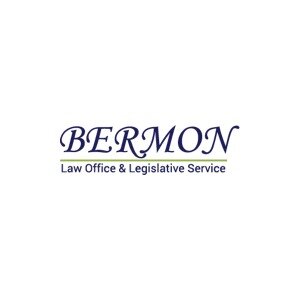Best Natural Resources Lawyers in Philipsburg
Share your needs with us, get contacted by law firms.
Free. Takes 2 min.
List of the best lawyers in Philipsburg, Sint Maarten
About Natural Resources Law in Philipsburg, Sint Maarten
Sint Maarten, known for its stunning beaches and biodiversity, has a diverse array of natural resources that require careful management and protection. The natural resources in Philipsburg, as part of the larger Sint Maarten area, include coastal areas, marine biodiversity, and unique terrestrial environments. Law surrounding these resources is crucial for ensuring sustainable development, preventing environmental degradation, and balancing economic activities with ecological preservation. Natural resources law in Philipsburg is thus pivotal in the conservation and management of these resources while also fostering opportunities for tourism and local economic activities.
Why You May Need a Lawyer
Engaging a lawyer can be essential in several scenarios related to natural resources in Philipsburg. Some common situations include:
- Ensuring compliance with environmental regulations when undertaking development projects.
- Navigating property disputes involving coastal or environmentally sensitive areas.
- Applying for permits necessary for activities that impact natural resources, such as construction or commercial fishing.
- Addressing legal consequences of environmental violations, such as pollution or habitat destruction.
- Understanding rights and responsibilities related to water usage and waste management.
- Participating in advocacy or public consultation processes regarding new policies or regulations affecting natural resources.
Local Laws Overview
The legal framework for natural resources management in Philipsburg is guided by both local and national laws aimed at balancing environmental protection with sustainable development. Key aspects include:
- Regulations on Coastal Zone Management, addressing activities that may affect coastal integrity including construction and tourism development.
- Environmental Protection Laws, which focus on preserving biodiversity and ecosystems, controlling pollution levels, and promoting sustainable resource usage.
- Zoning Laws, influencing land use and development practices to ensure alignment with environmental principles.
- Permitting Systems for activities impacting natural resources, ensuring such activities adhere to strict environmental standards.
- Conservation Policies, which include protected areas and species regulations to safeguard critical habitats and biodiversity.
Frequently Asked Questions
What are the main areas of natural resource law applicable in Philipsburg?
The main areas include coastal management, environmental protection, land-use zoning, and resource-specific regulations such as water and waste management laws.
How do local laws affect development near coastal areas?
Local laws require detailed environmental assessments and adherence to construction guidelines to minimize the impact on coastal ecosystems and ensure sustainable development.
What permits are needed for a business impacting natural resources?
Common permits include environmental impact assessments, zoning clearances, and specific resource extraction or usage permits, depending on the nature of the business.
How is waste management regulated in Philipsburg?
Waste management is governed by strict regulations that mandate proper disposal, treatment of waste materials, and pollution prevention strategies to protect natural resources.
What recourse is available if environmental laws are violated?
Violations can lead to fines, legal sanctions, and mandatory remedial actions. In severe cases, activities may be halted until compliance is achieved.
Are there laws protecting endangered species in Philipsburg?
Yes, there are comprehensive regulations aimed at protecting endangered species and their habitats to preserve biodiversity and ecological balance.
How can I ensure compliance with environmental regulations for a new project?
Engaging a lawyer with expertise in environmental law can help navigate compliance requirements and ensure all necessary permits and assessments are secured.
What role do community consultations play in resource-related lawmaking?
Community consultations are crucial for gathering public input and ensuring that laws reflect the interests and needs of local stakeholders while protecting resources.
How are marine resources managed legally in Philipsburg?
Marine resources management involves regulations that cover fishing practices, marine conservation zones, and pollution control measures in Philipsburg's coastal waters.
Are there specific incentives for environmentally sustainable practices?
Yes, various programs and policies provide incentives such as subsidies, tax benefits, and grants for businesses and individuals adopting sustainable practices.
Additional Resources
For further assistance, consider exploring the following resources:
- Sint Maarten Nature Foundation, which offers information and advocacy for natural resource conservation.
- Department of Infrastructure and Environment in Philipsburg, providing guidance on regulatory compliance and permits.
- Environmental Protection in the Caribbean (EPIC), an organization focused on ecological preservation initiatives.
Next Steps
If you require legal assistance in matters involving natural resources in Philipsburg, here are the steps you can take:
- Research and identify lawyers specializing in natural resources law within the region for their expertise.
- Gather pertinent information and documents related to your specific legal needs, such as permits, contracts, and any official correspondences.
- Schedule a consultation to discuss your case, seek legal advice, and understand potential outcomes and strategies.
- Explore your options for advocacy or mediation if you're involved in disputes concerning natural resources.
Lawzana helps you find the best lawyers and law firms in Philipsburg through a curated and pre-screened list of qualified legal professionals. Our platform offers rankings and detailed profiles of attorneys and law firms, allowing you to compare based on practice areas, including Natural Resources, experience, and client feedback.
Each profile includes a description of the firm's areas of practice, client reviews, team members and partners, year of establishment, spoken languages, office locations, contact information, social media presence, and any published articles or resources. Most firms on our platform speak English and are experienced in both local and international legal matters.
Get a quote from top-rated law firms in Philipsburg, Sint Maarten — quickly, securely, and without unnecessary hassle.
Disclaimer:
The information provided on this page is for general informational purposes only and does not constitute legal advice. While we strive to ensure the accuracy and relevance of the content, legal information may change over time, and interpretations of the law can vary. You should always consult with a qualified legal professional for advice specific to your situation.
We disclaim all liability for actions taken or not taken based on the content of this page. If you believe any information is incorrect or outdated, please contact us, and we will review and update it where appropriate.












